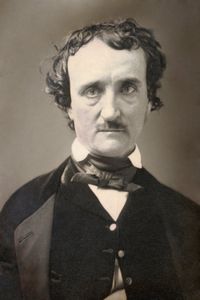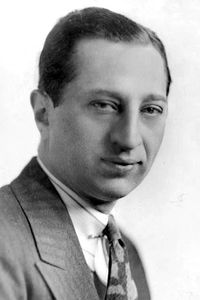Edgar Allan Poe was born on January 19, 1809, in Boston, Massachusetts. His parents, David Poe Jr. and Elizabeth Arnold Hopkins Poe, were touring actors who died in 1811 when Poe was just three years old. He was then adopted by John Allan, a tobacco merchant in Richmond, Virginia, and sent to a boarding school in London, England.
Poe later attended the University of Virginia for one year, but dropped out and ran up massive gambling debts after spending all of his tuition money. His adoptive father, John Allan, broke off his engagement to his fiancée Sarah Royster, leaving Poe heartbroken, traumatized, and broke. He enlisted in the army in May 1827, at the same time publishing his first book, "Tamerlane and Other Poems" (1827).
In 1829, Poe became a West Point cadet, but was dismissed after six months for disobedience. He published "Al Aaraf" (1829) and "Poems by Edgar A. Poe" (1831) with the funds contributed by his fellow cadets. His early poetry showed the musical effects of his verses, written in the manner of Lord Byron.
Poe moved in with his widowed aunt, Maria Clemm, and her teenage daughter, Virginia Eliza Clemm, whom he married before she was 14 years old. He earned respect as a critic and writer, formulating important literary theories in his essays "The Poetic Principle" and "The Philosophy of Composition."
Despite his compulsive behavior and alcoholism, Poe produced a constant flow of highly musical poems, including "The Raven" (1845) and "The Bells" (1849),which are considered some of his finest works. Among his masterful short stories are "Ligeia" (1838),"The Fall of the House of Usher" (1839),and "The Masque of the Red Death."
Poe is also credited with inventing the genre of the detective story, with his work "The Murder in the Rue Morgue" (1841) being considered the first detective story ever published.
Tragedy struck Poe when his wife Virginia died in 1847. Two years later, he returned to Richmond and resumed a relationship with his former fiancée, Sarah Royster, who was now a widow. However, shortly after their happy reconciliation, Poe was found unconscious on a street in Baltimore and died four days later, with the cause of his death still unknown.
Poe's critic and personal enemy, Rufus Griswold, published an insulting obituary and took away all of Poe's manuscripts, never returning them. Griswold later published Poe's "Memoir," in which he forged a madman image of the writer.
The name of the woman in Poe's poem "Annabel Lee" was used by Vladimir Nabokov in his novel "Lolita" as the name for Humbert's first love, Annabelle Leigh. Nabokov also borrowed phrases from Poe's poem in his novel. "The Fall of the House of Usher" was set to music by Claude Debussy as an opera, while Sergei Rachmaninoff created a musical tribute to Poe by making his favorite poem "The Bells" into the eponymous Choral Symphony.


























